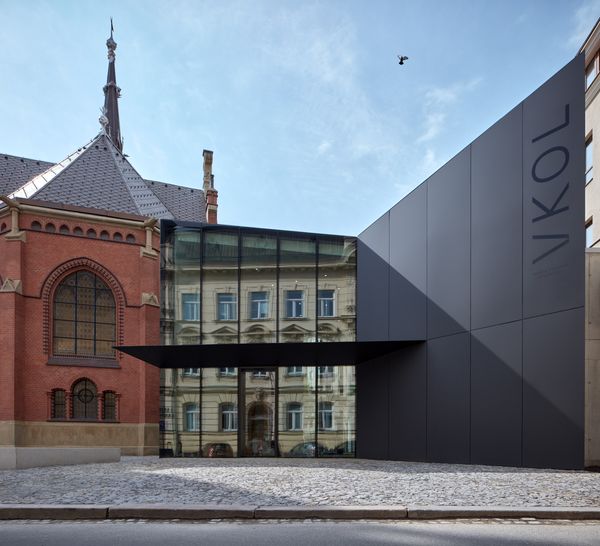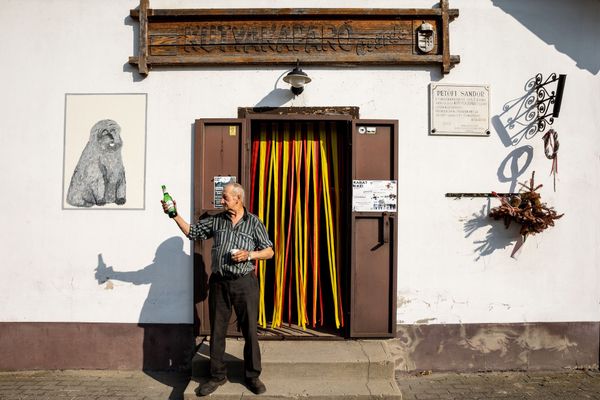Raman Pratasevich, a former opposition activist, journalist, and blogger, who was dragged off from a Ryanair plane, and arrested amid an international scandal, is free.
„I am incredibly grateful to the country and, of course, to the president personally for such a decision. This is, of course, just great news,” – said Raman Pratasevich in response to his presidential pardon by Alyaksandr Lukashenka, which meant he would not have to spend eight years in prison for his long history as an opposition activist. But it all came at a price.
Raman Pratasevich is known for his quite dangerous activism: the now twenty-eight-year-old Belarusian man joined the movement against Lukashenka in his early twenties when the president had been in power for already two decades. Pratasevich had repeatedly been in trouble with the authorities and was expelled from the Belarussian State University. He finally left Belarus in 2019 and went first to Poland and later to Lithuania. Although he left his home country, he did not give up the fight against the Lukashenka regime. He ran channels on various online platforms from abroad, which had already been severely limited by the Belarusian leadership inside the country. Following the rigged Belarusian elections in 2020, the anti-establishment and anti-Lukashenka Nexta Telegram channel, co-founded by Pratasevich, played a significant role. It also covered the mass protests against the fraudulent election results.
Pratasevich was arrested on 23 May 2021 when he and his girlfriend traveled on a Ryanair flight from Athens to Lithuania. Their flight was forced to land in the Belarusian capital Minsk due to a bomb threat. No bomb was found on board, but Pratasevich and his Russian girlfriend, Sofia Sapega, were arrested. The flight was then allowed to continue its journey to Vilnius. The forced landing was met with an international outcry, with the European Parliament classifying it as an act of state terrorism and imposing sanctions on Belarus.

After his arrest, Pratasevich showed a striking change of heart: he has repeatedly confessed his anti-regime acts, spoke quite glowingly about the regime he used to fight against, and even publicly disowned his activist girlfriend, Sofia Sapega. Following his arrest, Pratasevich said that their relationship was already falling apart before their trip to Athens, where they had traveled as a last-ditch attempt to rescue it, but on the way home, they already knew they would break up in Vilnius. But they never made it to the Lithuanian capital. Pratasevich soon married someone else; whether this was for real or part of a performance is not known. Sapega was handed over to Moscow, where she was sentenced to six years in prison.
Pratasevich was placed under house arrest and made several confessions regarding his former anti-regime activist past. He is visibly distressed in these videos, with injuries in his arms. It is suspected that he was subjected to physical and psychological pressure to join the Lukashenka regime’s side. Marie Struthers, Amnesty International’s Eastern Europe and Central Asia Director, said: “Raman Pratasevich’s forced ‘confession’ on Belarusian state TV was devastating to watch. He was plainly on the edge of breaking down, in tears and with visible wounds on his wrists, as he was forced to incriminate himself and praise his captors.”
But Pratasevich’s repentance did not remain unrewarded: he was made a free man by Lukashenka after years of various forms of persecution.

Apparently, a pardon does not come for free. Another Belarusian activist, Yana Pinchuk, was sentenced to twelve years in prison on 6 June. The charges against the 24-year-old woman include creating an extremist group, involvement in the creation of a terrorist group, and harming national security. Human rights watchdogs say the charges against Pinchuk are trumped up and politically motivated because of her participation in the demonstrations after the fraudulent election in 2020, where Lukashenka was declared as the winner. Pinchuk was arrested in St Petersburg in November 2021 at the request of Minsk, and her trial started this spring. The Belarusian authorities also accuse Pinchuk of running the Vitsebsk97% Telegram channel, which is labeled as extremist. However, she says she immediately shut down the channel as soon as it was declared extremist. In any case, Pinchuk is expected to face up to twelve years in prison.
Graphics: Roland Molnár

Our favourite places to visit in the Balaton Highlands

Functional change at its best: library opened in a newly renovated church










